Community Recycling – A Search for Common Ground
Community Recycling – A Search for Common Ground

Michelle, the project manager from Search for Common Ground, speaks with members of the Syrian community in Sarafand about the recycling project that the Lebanese and Syrian communities have developed together. During awareness raising sessions, Michelle emphasizes the importance of recycling to preserve the environment and the dangers of burning garbage to both health and nature. (c) UNHCR / S. Hoibak
Since the start of the crisis in Syria, Lebanese communities have received refugees in record numbers. Refugees are now present in more than 1,750 locations across this small country, with the largest concentrations of refugees found in areas that are marked with the highest levels of poverty among Lebanese people. Many towns have grown considerably, and municipalities in many areas need extra support to bring public services such as electricity, potable water, sanitation, and garbage removal to residents. In addition, the demographic shift brought by the presence of over 1 million refugees from Syria has further shaken Lebanon’s stability. The UN Refugee Agency (UNHCR) and partners therefore seek to invest in measures that promote interaction between refugees and host communities, mitigate tensions and deal peacefully with conflict.
One such initiative is implemented by the NGO Search for Common Ground together with UNHCR and funded by the European Union. Within this project, Syrian and Lebanese members of the community form joint committees. They work together to identify projects that foster collaboration between the two communities and improve the living conditions in their neighborhoods. The project is taking place in north and south Lebanon since 2014.
In Sarafand, south Lebanon, the committee agreed that their municipality needed to carry out a more sustainable system of waste management, and designed a project for the collection of recyclable materials from households. As Lebanon deals with an unprecedented garbage crisis, this project provides a great reminder of what communities can achieve by working together.
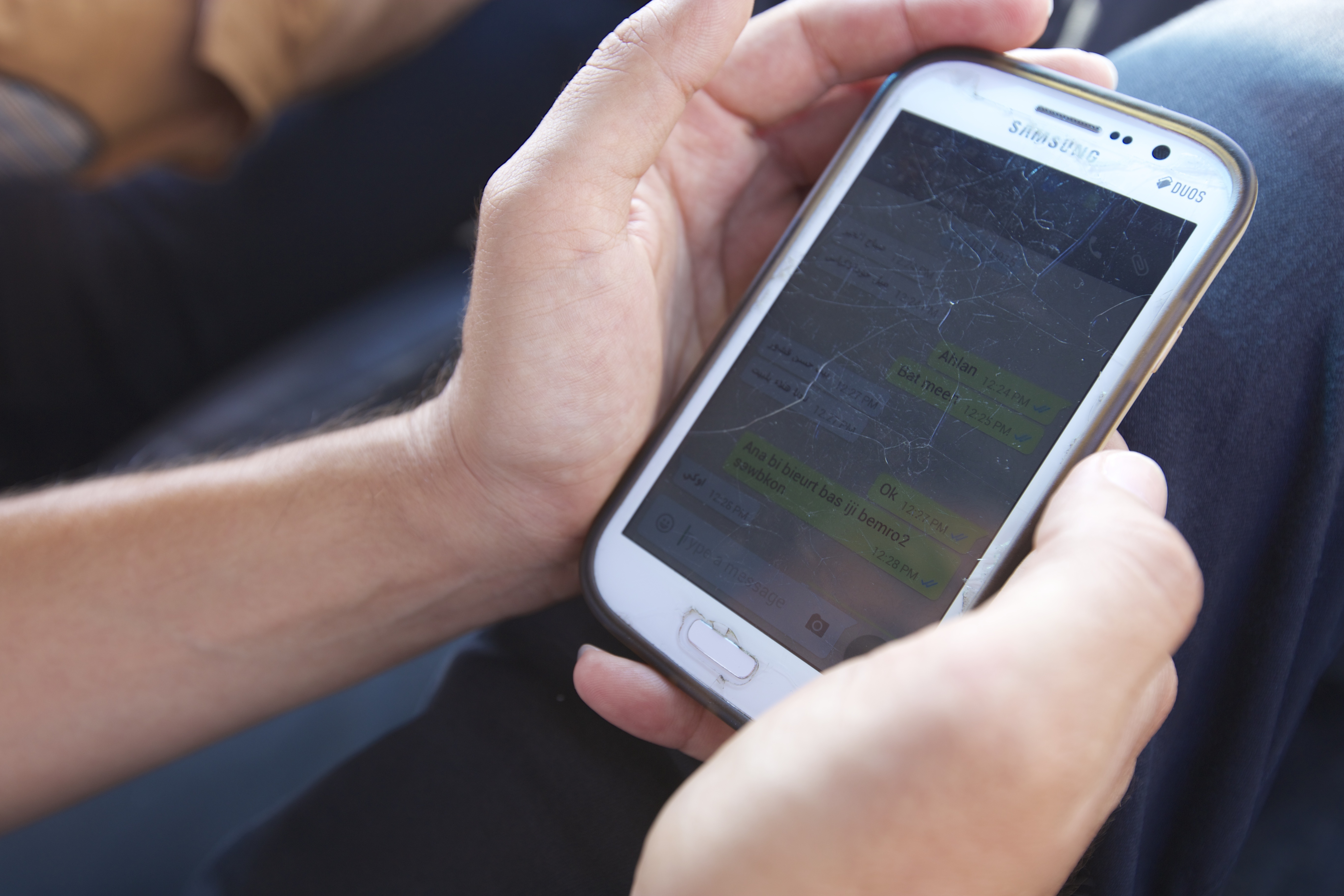
Salim, a Lebanese volunteer with the project, receives a Whatsapp message from one of the participating households saying that their recycling garbage bags are full and need to be picked up. Together with Ghazi, a Syrian volunteer, Salim takes turns to visit the participating households to collect the garbage. The garbage is then brought to a central point, from where it is sorted and sold to recycling companies. The proceeds from these sales finance the project and cover its running costs. (c) UNHCR/S. Hoibak
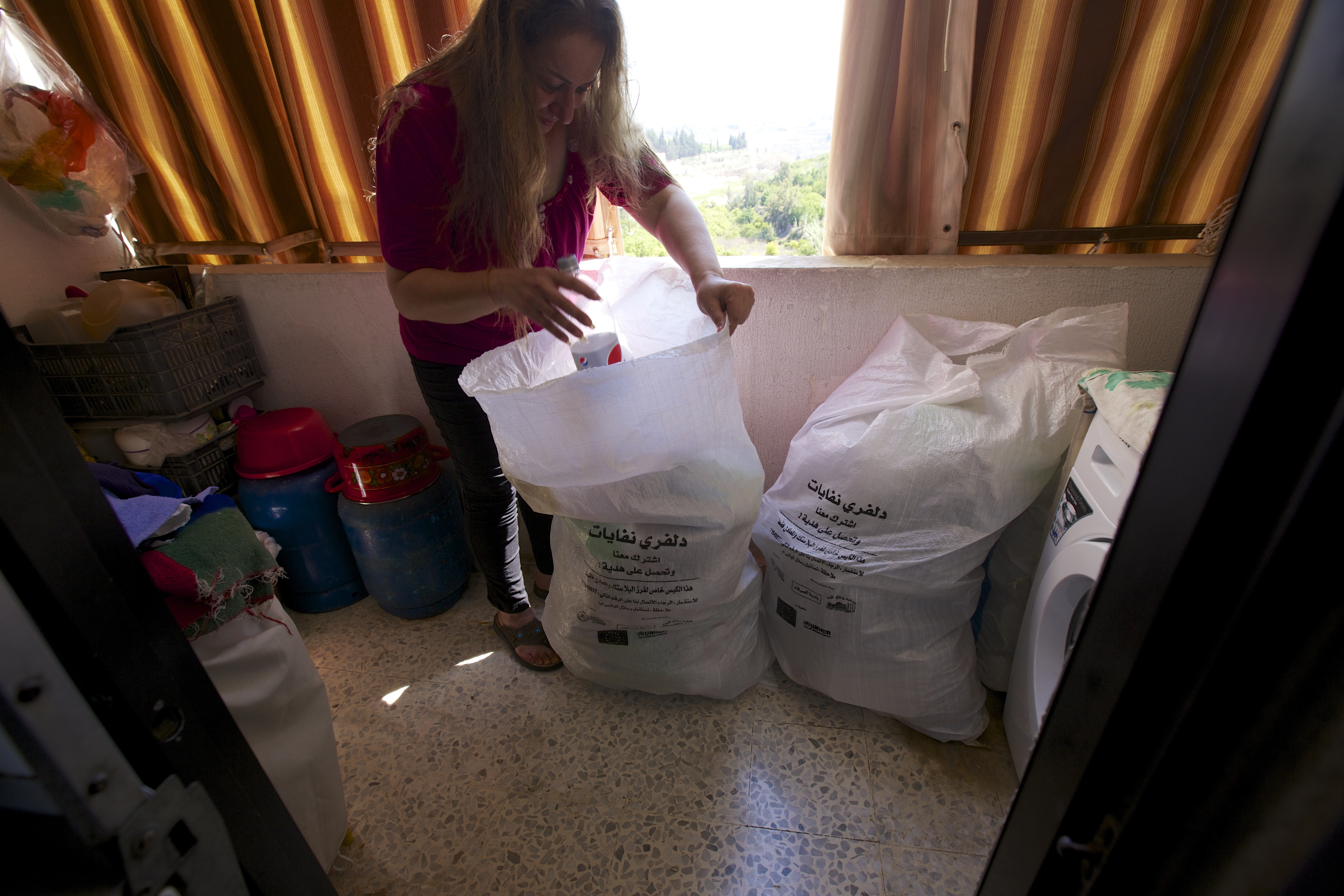
Zeynab, a Lebanese from Sarafand, has been sorting her household solid waste for over 18 years. She started doing so after she participated in a project of the American University of Beirut which encouraged recycling. Her determination to continue was strengthened by the fact that her son suffers from asthma, which is exacerbated by fumes from burning garbage. (c) UNHCR/S. Hoibak
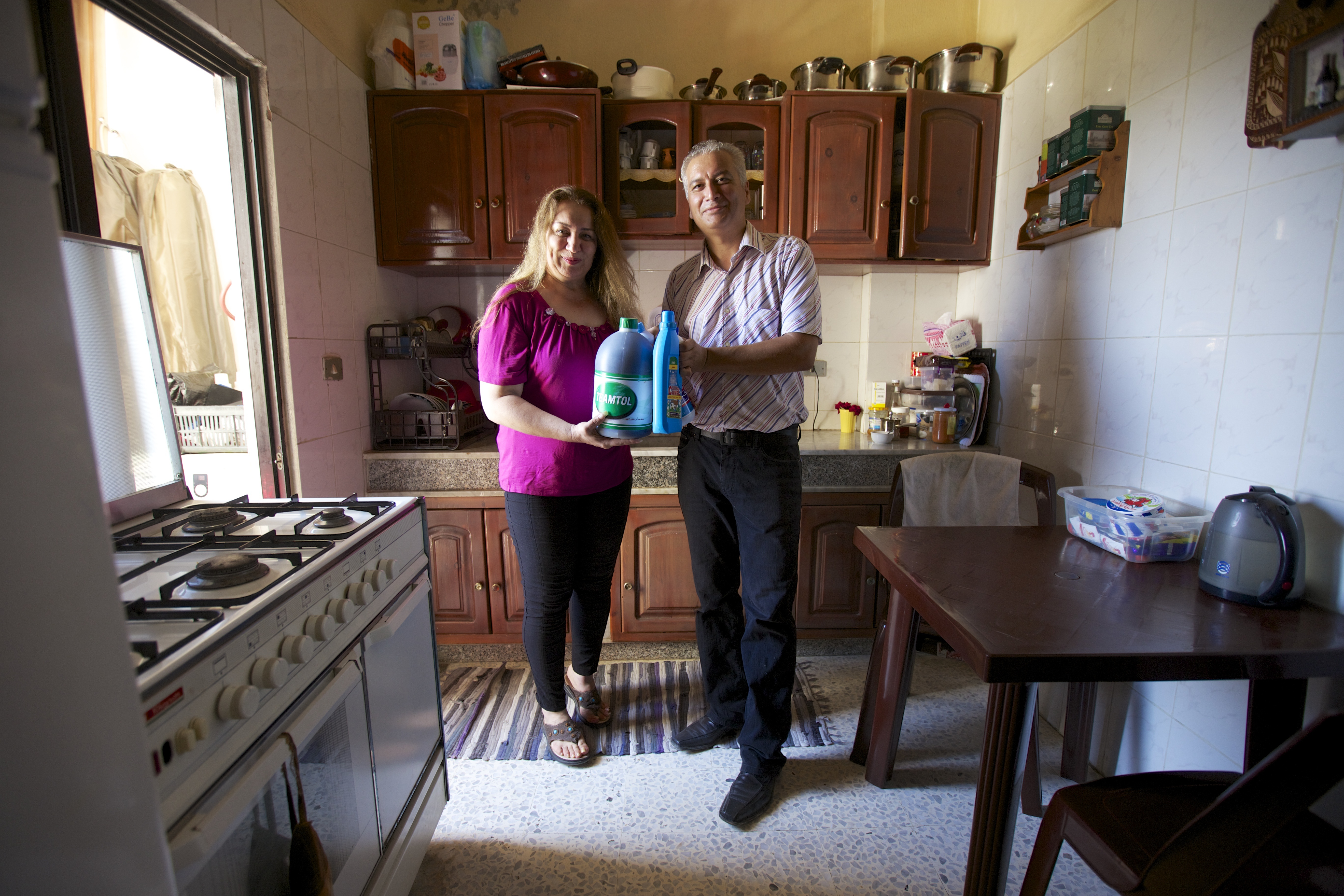
Zeynab receives cleaning supplies from Salim after handing over her bags of recyclable items. In order to increase the engagement in the project, participating households receive incentives in the form of cleaning products each time they provide a bag of recyclable waste. (c) UNHCR/S. Hoibak
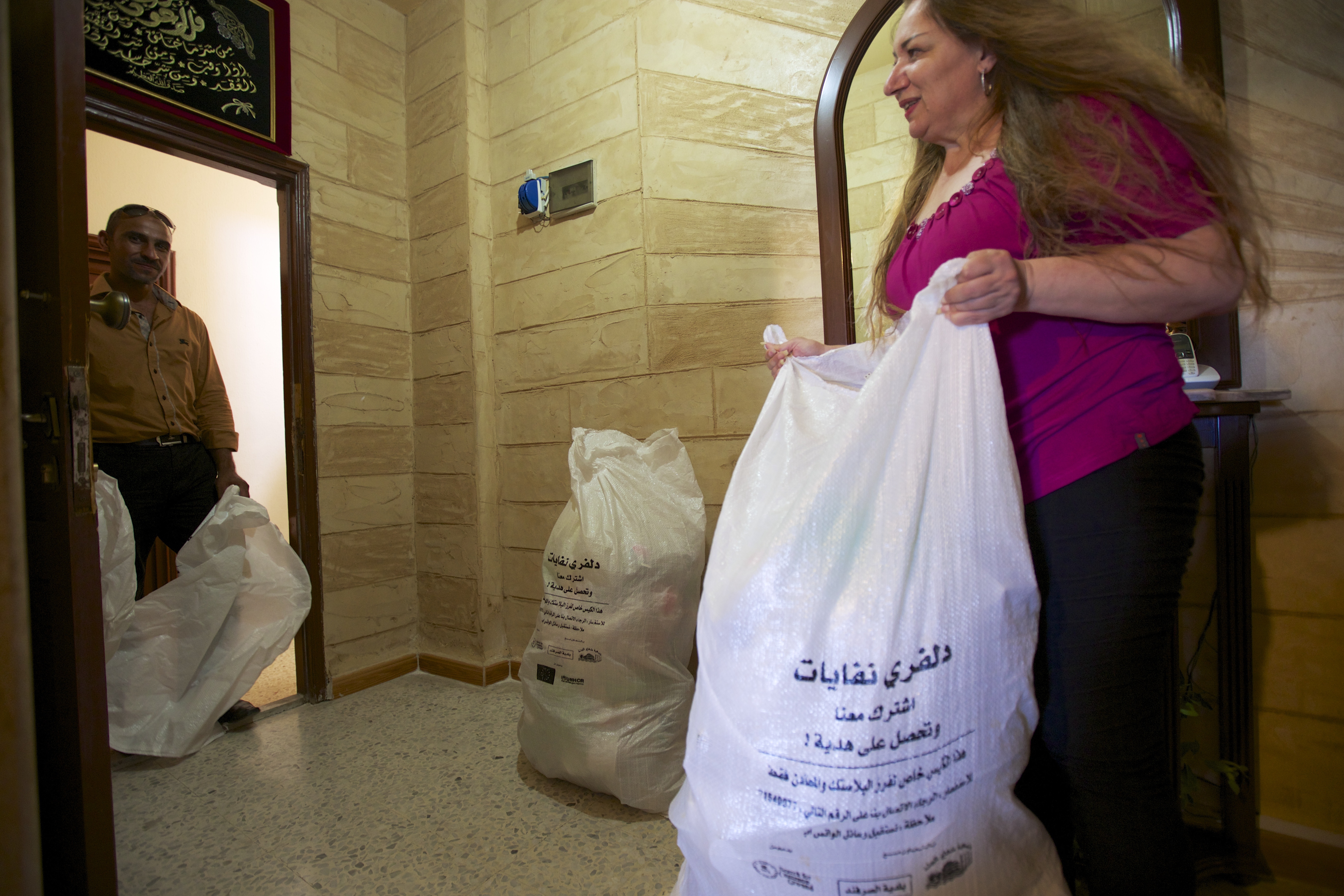
Zeynab: “I try to encourage my friends and community members to participate in the recycling project by holding meetings at my house to inform others of the project.” While collecting Zeynab’s garbage bags volunteer Ghazi confirms her strong involvement in the project: “Zeynab is really a leading figure in the recycling project in Sarafand and has had a huge impact on motivating other people to become part of it.” (c) UNHCR/S. Hoibak
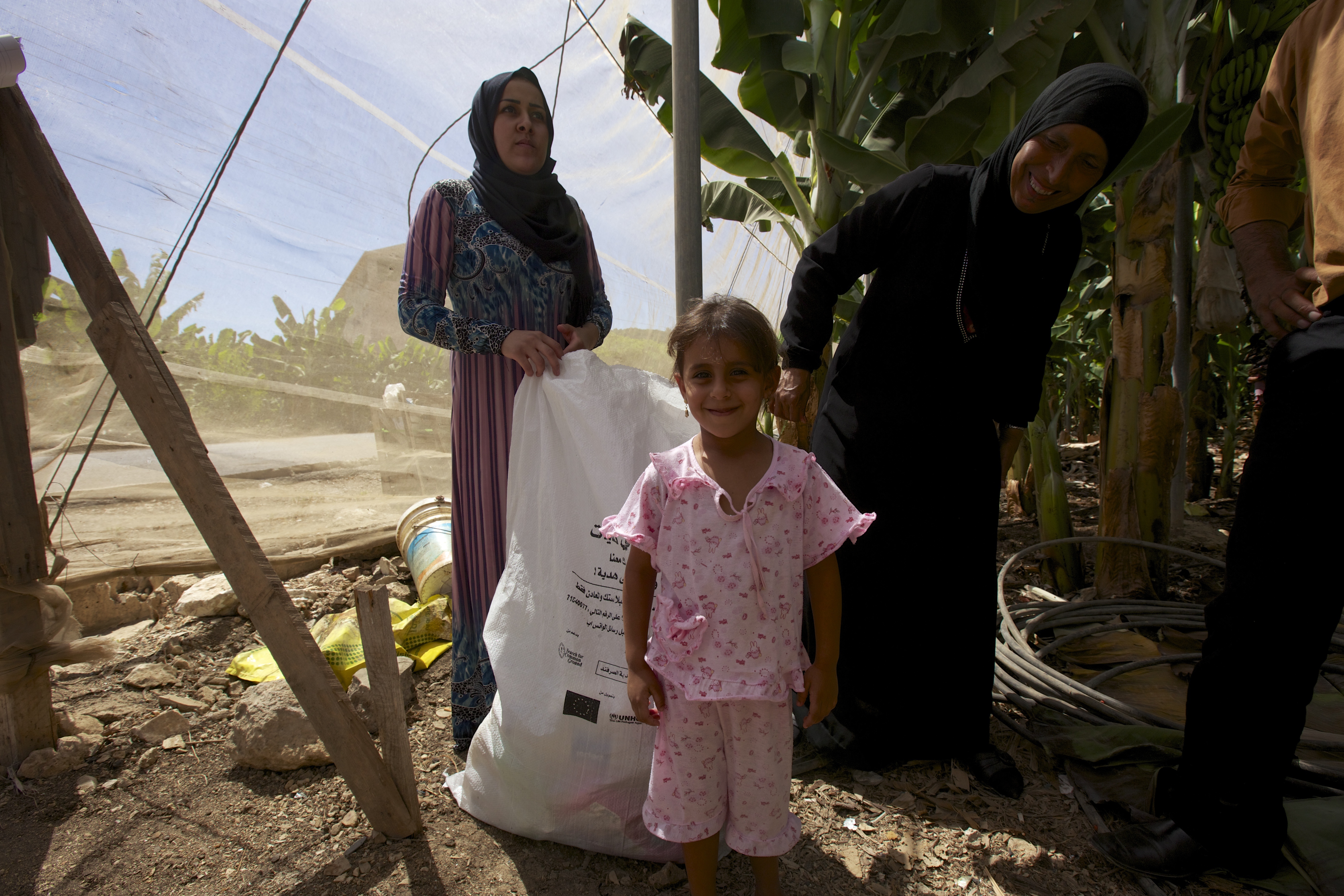
Ghoroub (right), came from Homs with her husband, six sons, four daughters and their families. There are more than 20 people living in their house, which is situated beside a banana plantation they work in. “Back home we never recycled”, she said. They now participate in the recycling project to make sure their garbage does not have a detrimental effect on the environment, including on the plantation where they work. (c) UNHCR/S. Hoibak
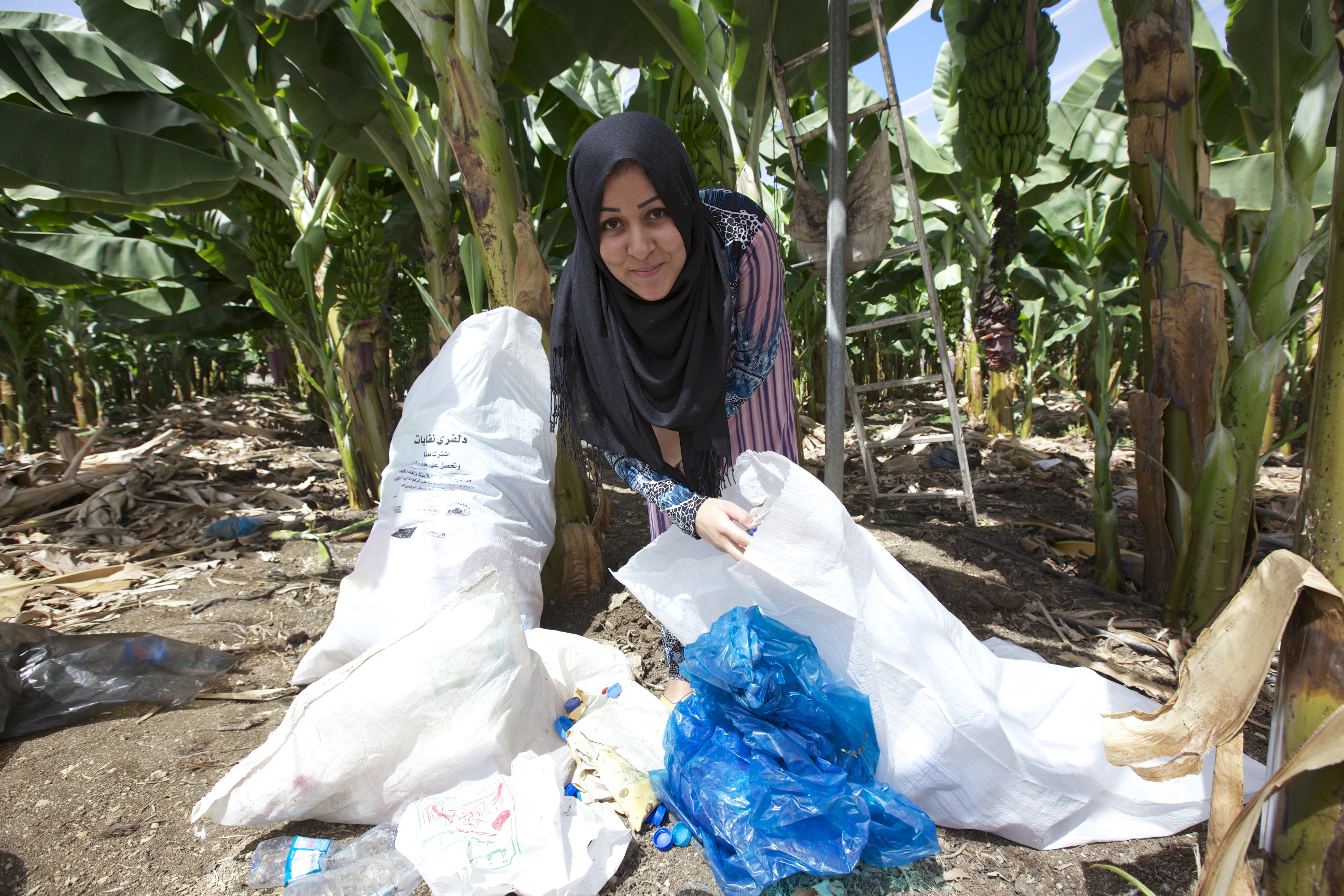
Ghouroub’s daughter collects the garbage before contacting Ghazi to come by and pick up the bags. The family also collects the recyclable waste from a nearby school not far from where they live to make sure it gets recycled. The incentives that they receive through the project makes a huge difference for both Syrians and Lebanese participants. (c) UNHCR/S. Hoibak
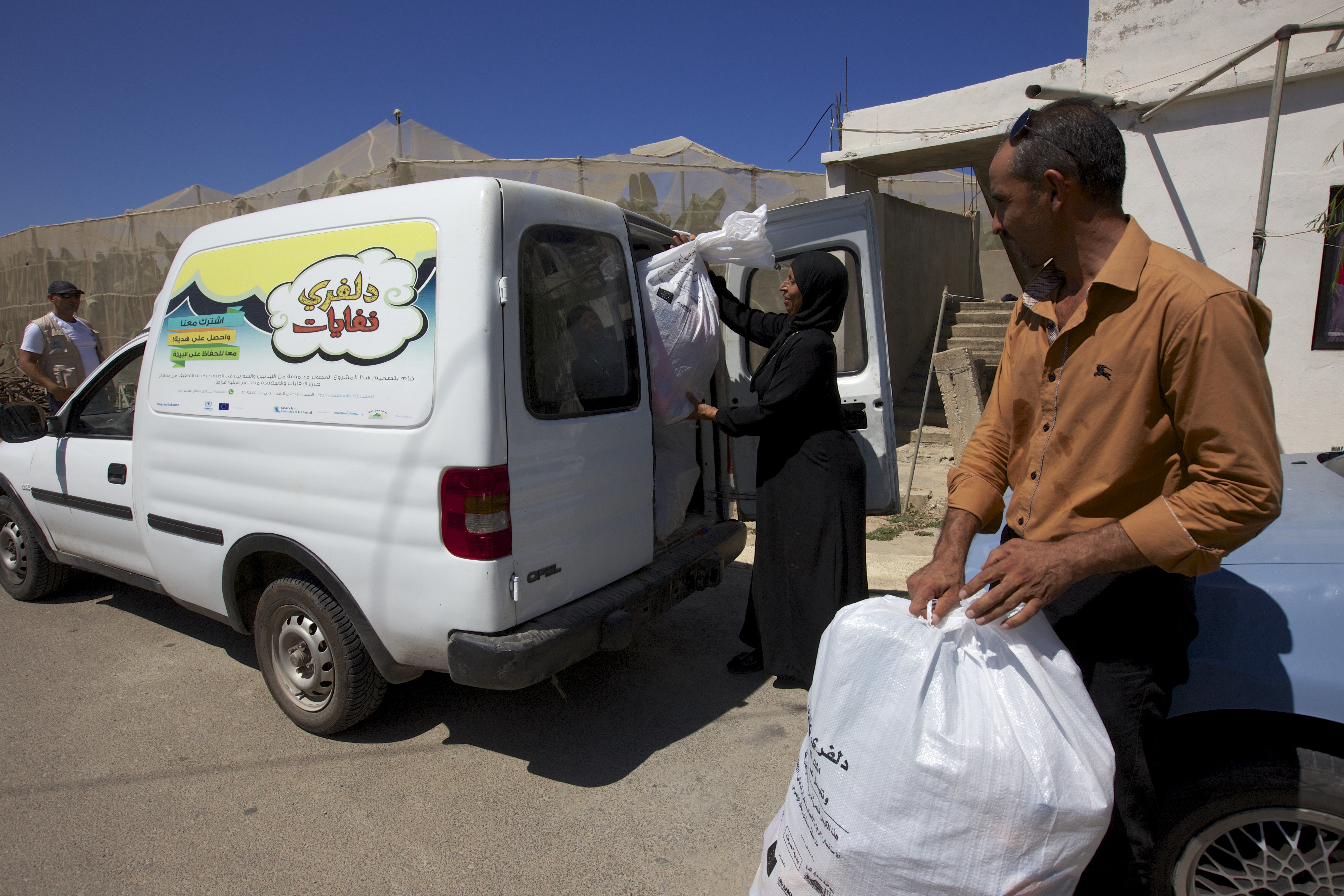
Ghoroub helps Ghazi load the recycled garbage in the van before he transports it to the recycling storage area in Sarafand. Ghazi also gives Ghoroub and her family replacement recycling bags so they can continue to collect more recyclable waste. After recent national media coverage on the community recycling project, over 300 households from Sarafand are now regularly collecting recycling materials and requesting pick-ups. (c) UNHCR/S. Hoibak
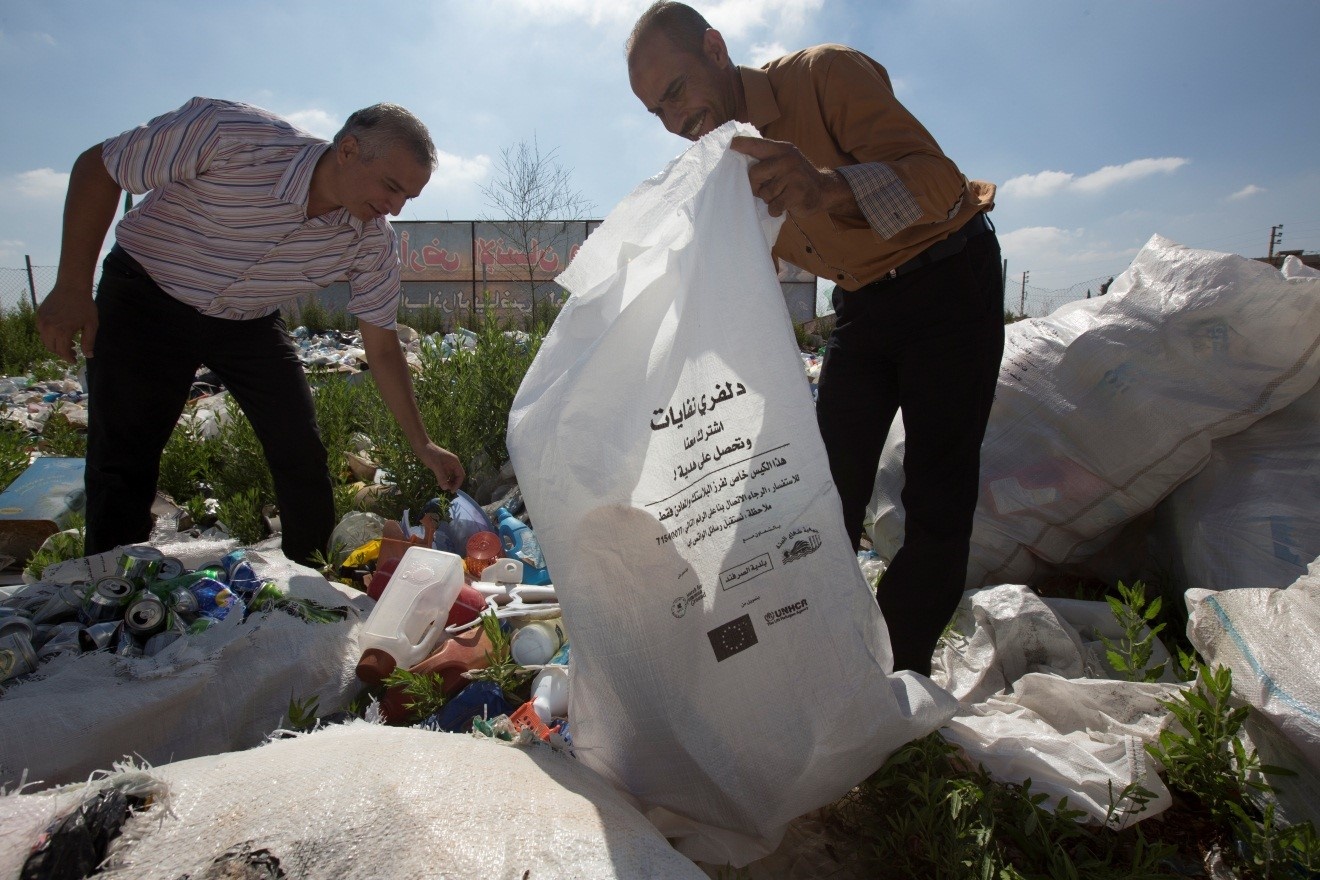
Up to three times per week the Sarafand joint committee hires daily workers to sort recycling into clear plastic, opaque plastic and tin, today Salim and Ghazi work together to make a head start. The project brings the Lebanese and Syrian communities together, and provides them the opportunity to interact and communicate with each other. In Sarafand this resulted in some genuine friendships, and mutual assistance between the two communities beyond the project. (c) UNHCR/S. Hoibak
UNHCR's note: This story has been published in Arabic at:
http://www.unhcr.org/ar/news/latest/2016/8/57c512384.html.

